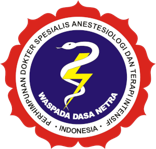Combating Respiratory Failure in Guillain–Barré Syndrome within a Resource-Limited Rural ICU: A 7-Month Weaning Journey
Abstract
Background : Respiratory failure in Guillain–Barré syndrome (GBS) is the most dangerous complication. Approximately 22% of patients with GBS require a mechanical ventilation (MV) within the first week of hospital admission. Management of the patient with prolonged MV during ICU stay has been challenging, especially in resource-limited rural areas. The important consideration is the patient's ability to regain spontaneous breathing to evaluate the readiness to wean and the optimal time for deciding to decannulation.
Case Illustration : We reported a case about the management of respiratory failure due to GBS in the ICU involving a 37-year-old woman presented to the emergency room due to rapidly progressive weakness. The patient was treated with a 5-day course of intravenous immunoglobulin (IVIG). After 25days with a MV, the patient underwent bedside PDT as a choice for critically ill patients who require prolonged MV in the ICU. The patient's motor development during the treatment period in the ICU showed a slow progression. There was no further significant progress in the patient's motor development for up to six months. Furthermore, on day 183 of the treatment, muscle recovery began to become obvious. We found a successful liberation of dependency after 207 days on MV and successful decannulation of the tracheostomy tube on day 215 in a hospital with limited facilities in rural areas. The patient was transferred from the ICU to the ward on day 217 and discharged on day 219. A one-month follow-up showed there were no respiratory complaints.
Conclusion: Long-term care for a GBS patient with prolonged MV in the ICU requires a multidisciplinary team approach, including optimization of treatment, nutrition, rehabilitation as well as psychological support. Comprehensive ICU care is the key to success in our case.Keywords
Full Text:
PDFReferences
- Van den Berg B, Walgaard C, Drenthen J, Fokke C, Jacobs BC, van Doorn PA. Guillain-Barré syndrome: pathogenesis, diagnosis, treatment and prognosis. Nat Rev Neurol. 2014 Aug;10(8):469–82. doi: 10.1038/nrneurol.2014.121.
- Leonhard SE, Mandarakas MR, Gondim FAA, Bateman K, Ferreira MLB, Cornblath DR, et al. Diagnosis and management of Guillain-Barré syndrome in ten steps. Nat Rev Neurol. 2019 Nov;15(11):671–83. doi: 10.1038/s41582-019-0250-9.
- Galassi G, Marchioni A. Tackling respiratory failure in Guillain Barre’ syndrome: Burdens, management and prognosis. Canadian Journal of Respiratory, Critical Care, and Sleep Medicine. 2025 Jan 2;9(1):27–37. doi:10.1080/24745332.2024.2434480
- Shang P, Zhu M, Baker M, Feng J, Zhou C, Zhang HL. Mechanical ventilation in Guillain–Barré syndrome. Expert Review of Clinical Immunology. 2020 Nov 1;16(11):1053–64. doi: 10.1080/1744666X.2021.1840355.
- Lerner AD, Yarmus L. Percutaneous Dilational Tracheostomy. Clinics in Chest Medicine. 2018 Mar 1;39(1):211–22. doi: 10.1016/j.ccm.2017.11.009.
- Temel Ş, Metin H, Gök MG, Yüksel RC, Sungur M, Gülmez E, et al. Comparative Analysis of Percutaneous Dilatational Tracheotomy and Surgical Tracheotomy in Critically Ill Patients: Outcomes and Complications. Journal of Cardiothoracic and Vascular Anesthesia. 2025 May 1;39(5):1214–20. doi: 10.1053/j.jvca.2025.02.008.
- Ghori UK, Chambers DM. Percutaneous dilational tracheostomy: current techniques and evidence of safety. Shanghai Chest. 2020 Apr 10;4(0). doi: 10.21037/shc.2019.11.13
- Cheng MCF, Murphy PB, Hart N, Evans MRB, Spillane JE, Howard RS. Prolonged Ventilatory Support for Patients Recovering From Guillain-Barré Syndrome. Neurol Clin Pract. 2021 Feb;11(1):18–24. doi: 10.1212/CPJ.0000000000000793.
- Willison HJ, Jacobs BC, Doorn PA van. Guillain-Barré syndrome. The Lancet. 2016 Aug 13;388(10045):717–27. doi: 10.1016/S0140-6736(16)00339-1.
- Zaki HA, Iftikhar H, Najam M, Masood M, Al-Marri NDR, Elgassim MAM, et al. Plasma exchange (PE) versus intravenous immunoglobulin (IVIG) for the treatment of Guillain-Barré syndrome (GBS) in patients with severe symptoms: A systematic review and meta-analysis. eNeurologicalSci. 2023 June 1;31:100468. doi: 10.1016/j.ensci.2023.100468.
- Shang P, Feng J, Wu W, Zhang HL. Intensive Care and Treatment of Severe Guillain-Barré Syndrome. Front Pharmacol. 2021;12:608130. doi: 10.3389/fphar.2021.608130.
- Liao LF, Myers JG. Percutaneous Dilatational Tracheostomy. Atlas of the Oral and Maxillofacial Surgery Clinics of North America. 2015 Sept 1;23(2):125–9. doi:10.1016/j.cxom.2015.05.004
- Rashid AO, Islam S. Percutaneous tracheostomy: a comprehensive review. J Thorac Dis. 2017 Sept;9(Suppl 10):S1128–38. doi: 10.21037/jtd.2017.09.33.
- Taha A, Omar AS. Percutaneous dilatational tracheostomy. Is bronchoscopy necessary? A randomized clinical trial. Trends in Anaesthesia and Critical Care. 2017 Aug 1;15:20–4. doi: 10.1016/j.tacc.2017.06.002
- Barr J, Downs B, Ferrell K, Talebian M, Robinson S, Kolodisner L, et al. Improving Outcomes in Mechanically Ventilated Adult ICU Patients Following Implementation of the ICU Liberation (ABCDEF) Bundle Across a Large Healthcare System. Crit Care Explor. 2024 Jan 19;6(1):e1001. doi: 10.1097/CCE.0000000000001001.
- Dolinay T, Hsu L, Maller A, Walsh BC, Szűcs A, Jerng JS, et al. Ventilator Weaning in Prolonged Mechanical Ventilation—A Narrative Review. J Clin Med. 2024 Mar 26;13(7):1909. doi: 10.3390/jcm13071909.
- Weiss N, Marois C, Le Guennec L, Rohaut B, Demeret S. Critical insights for intensivists on Guillain-Barré syndrome. Annals of Intensive Care. 2025 May 21;15(1):67. doi: 10.1186/s13613-025-01464-w
- Van den Berg B, Storm EF, Garssen MJP, Blomkwist-Markens PH, Jacobs BC. Clinical outcome of Guillain-Barré syndrome after prolonged mechanical ventilation. J Neurol Neurosurg Psychiatry. 2018 Sept;89(9):949–54. doi: 10.1136/jnnp-2018-317968
Refbacks
- There are currently no refbacks.








